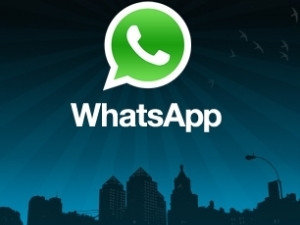
Rumours of Google's $1 billion bid to acquire the mobile messaging app WhatsApp have been dismissed by WhatsApp business development head Neeraj Arora.
Arora told allthingsD.com that the company was not engaged in sales talks with Google. This follows reports that surfaced on Digital Trends on Monday, with an inside source disclosing that the search engine giant is working on what could be its next billion-dollar acquisition.
It also reported that WhatsApp was negotiating for an even higher selling price.
The free smartphone messaging app was launched in 2009 and is estimated to have 250 million users worldwide.
WhatsApp's annual revenue is estimated to be near the $100 million mark, with many pundits believing that, with the fast growth rate, a $1 billion sale price is on the cheap side.
Last year, research by World Wide Worx revealed WhatsApp is growing rapidly in SA - going from 0% in 2010, to being used by 26% of local mobile users in 2012.
Previous bids
Google is not the first to company to want a cut of the WhatsApp pie. In December last year, reports that the world's largest social network, Facebook, was looking to purchase the messaging app surfaced on TechCrunch.
WhatsApp also dismissed the Facebook sale rumours, saying: "The TechCrunch article is a rumour and not factually accurate." Last year, rumours also surfaced that Google planned to buy WhatsApp.
No ads, thank you
WhatsApp charges a yearly subscription fee of $0.99 and has made it very clear that it doesn't support advertisements on the messaging platform, substantiating this position on its official blog. "These days, companies know literally everything about you, your friends, your interests, and they use it all to sell ads.
"Advertising isn't just the disruption of aesthetics, the insults to your intelligence and the interruption of your train of thought.
"When we sat down to start our own thing together three years ago, we wanted to make something that wasn't just another ad clearinghouse. We wanted to spend our time building a service people wanted to use, because it worked and saved them money and made their lives better in a small way. We knew that we could charge people directly if we could do all those things. We knew we could do what most people aim to do every day: avoid ads."
Share